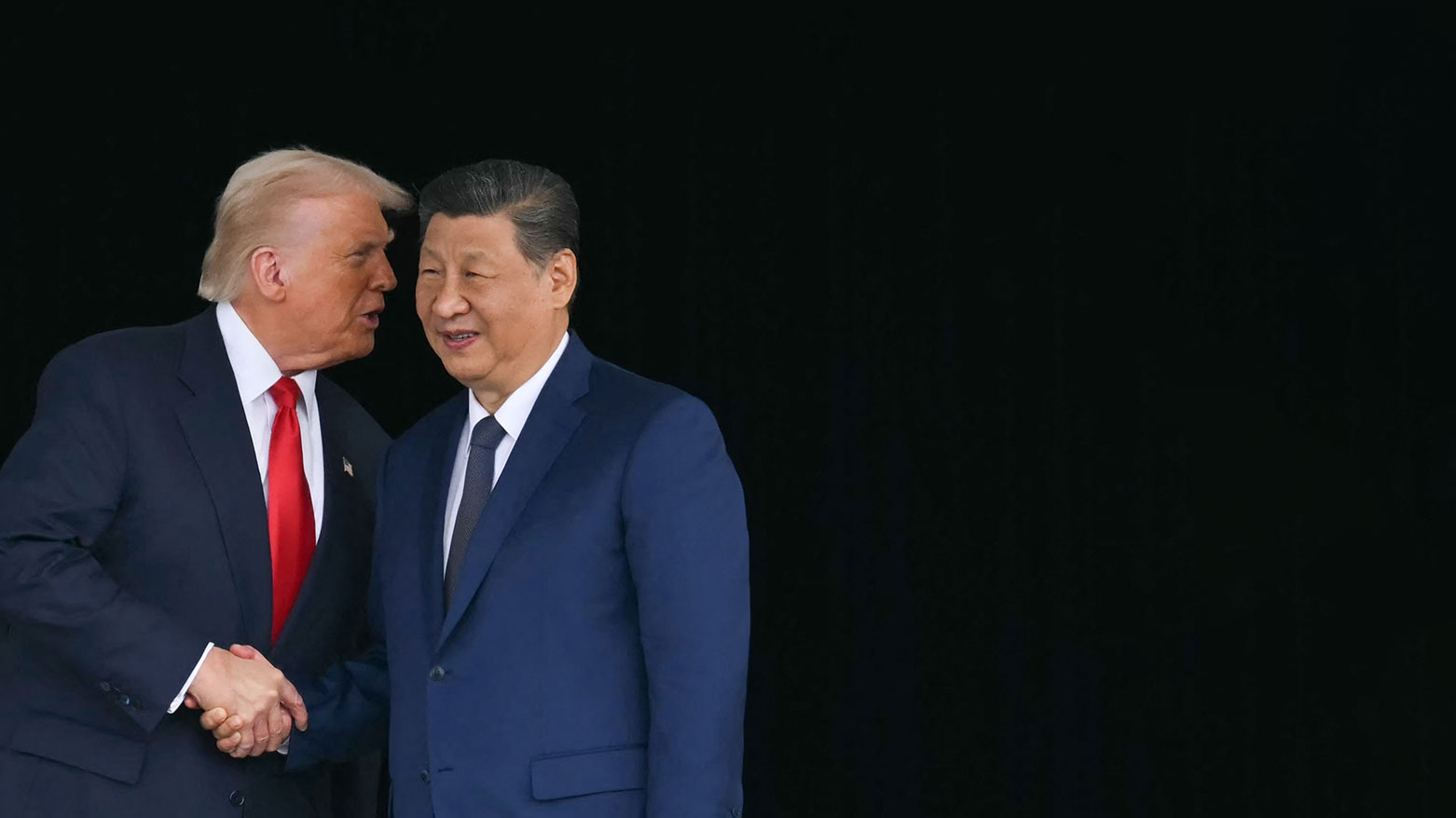Trump says Xi understands ‘consequences’ if China invades Taiwan
Trump warned that Xi “understands the consequences” if China invades Taiwan, as tensions rise over the island and the South China Sea. His remarks followed renewed U.S.–China talks and Taiwan’s defense upgrades.

ERBIL (Kurdistan 24) – U.S. President Donald Trump said Chinese President Xi Jinping “understands the consequences” if China invades Taiwan, in comments suggesting a warning to Beijing but without clarifying whether Washington would militarily intervene in such a scenario.
In excerpts of a CBS 60 Minutes interview broadcast on Sunday, Trump said that Taiwan “never even came up as a subject” during his meeting with Xi in South Korea last Thursday — their first face-to-face encounter in six years.
Asked whether he would order U.S. forces into action if China launched a military operation against Taiwan, Trump replied, “You’ll find out if it happens, and he understands the answer to that,” refusing to elaborate further.
“I can’t give away my secrets,” he said from his Mar-a-Lago resort in Florida. “The other side knows.”
Trump claimed that Xi and his inner circle had “openly said” they would never take aggressive action “while President Trump is president,” asserting that Beijing is aware of the “consequences.”
The remarks come as tensions between Washington and Beijing continue to build over Taiwan and the South China Sea — areas that have increasingly become focal points of regional power competition.
On Friday, U.S. Defense Secretary Pete Hegseth met his Chinese counterpart Dong Jun on the sidelines of the ASEAN Defense Ministers’ Meeting in Kuala Lumpur, in what both sides described as a “constructive” dialogue.
Hegseth said he told Dong that while “the United States does not seek conflict,” it “will continue to vigorously defend its interests.” He also expressed concern about China’s activities around Taiwan and in the South China Sea, emphasizing the importance of maintaining “a balance of power in the Indo-Pacific region.”
Dong Jun, for his part, said Beijing and Washington should “enhance communication” between their defense ministries and “increase interaction between their military officers.” He also urged the U.S. to “oppose Taiwan independence,” asserting that China has “full capacity to respond calmly” to any “violations or provocations.”
The meeting followed the Trump–Xi summit in South Korea, where the two leaders reportedly focused on easing the U.S.–China trade dispute and stabilizing bilateral relations — even as strategic frictions remain unresolved.
In Taipei, Taiwan’s President Lai Ching-te announced plans to accelerate the construction of an advanced air defense system known as “T-Dome,” designed to provide multi-layered protection and high-precision interception capabilities.
Lai said the initiative aims to strengthen Taiwan’s security amid escalating Chinese military pressure, declaring that the system will “form a safety net for the island and protect the lives and property of our citizens.”
“We are determined to preserve peace through strength,” Lai said in his National Day address, echoing Washington’s calls for Taipei to take greater responsibility for its defense.
Bloomberg reported that the plan aligns with Lai’s broader policy since taking office in May 2024 to modernize Taiwan’s defense posture in response to Beijing’s “increasingly assertive” actions.
China regards the self-governing island of 23 million people as part of its territory and has vowed to bring it under its control — by force if necessary.
Taiwan’s Mainland Affairs Council Chairman Chiu Chui-cheng warned in September that Beijing is “actively preparing for war” to seize Taiwan, cautioning that a Chinese takeover would trigger a “chain reaction” threatening regional and U.S. security.
Speaking at Washington’s Heritage Foundation, Chiu said the Chinese Communist Party seeks not only unification with Taiwan but also the exclusion of U.S. influence from the Indo-Pacific, ultimately aiming to replace Washington as a global leader.
“If China captures Taiwan by force, it will destabilize the regional balance of power and directly endanger U.S. security and prosperity,” he said.
Chiu emphasized that Taiwan, as the world’s leading producer of advanced semiconductors, plays a vital role in the global technology supply chain — a role whose disruption “would be a major loss for the international community, especially the United States.”
Trump’s remarks, the recent U.S.–China defense meeting, and Taiwan’s ongoing military preparations underscore a volatile balance in East Asia. While Washington maintains its “One China” policy, it continues to supply Taipei with defensive weapons and diplomatic backing.
As Beijing expands its military presence and rhetoric, and Taipei strengthens its deterrence capabilities, Trump’s latest comments reflect the enduring uncertainty surrounding America’s future response — leaving open the question of whether deterrence alone will be enough to prevent confrontation.